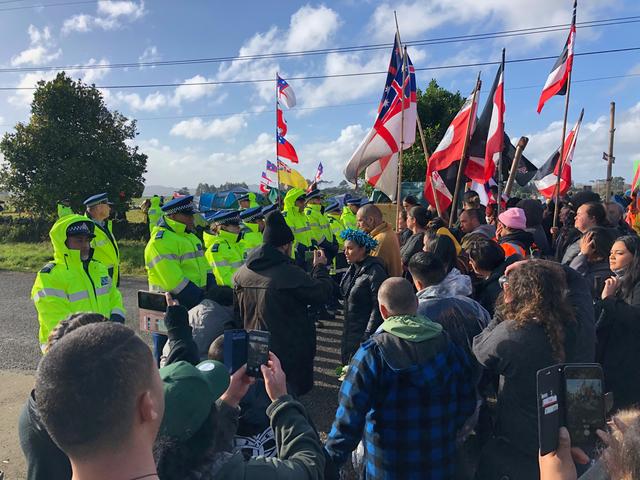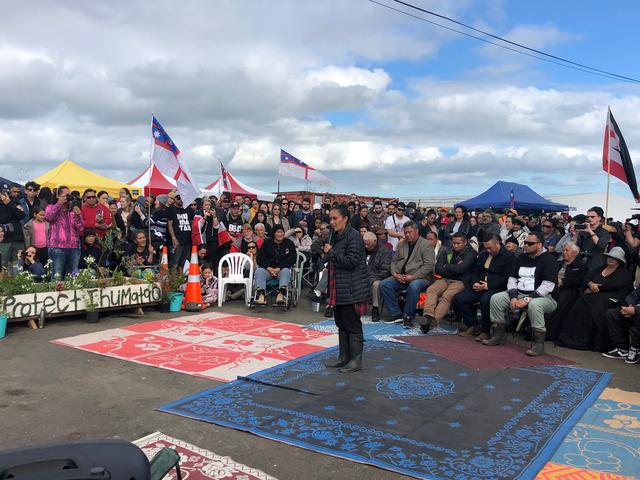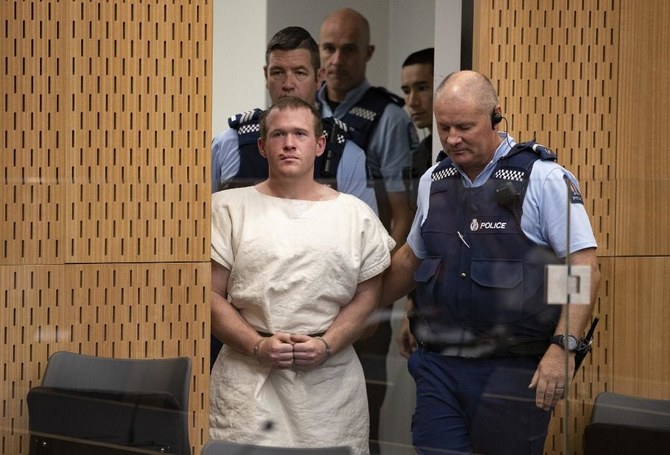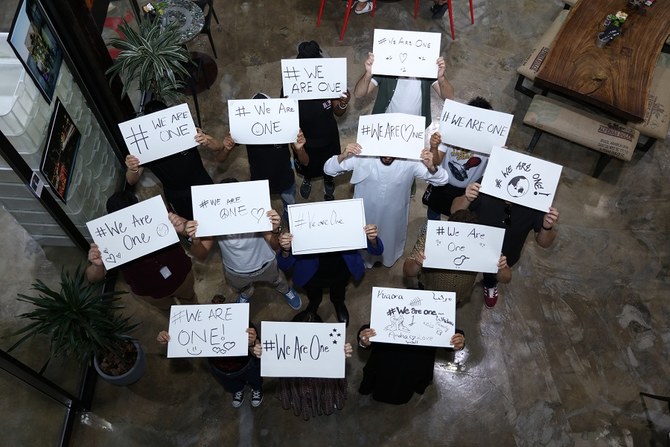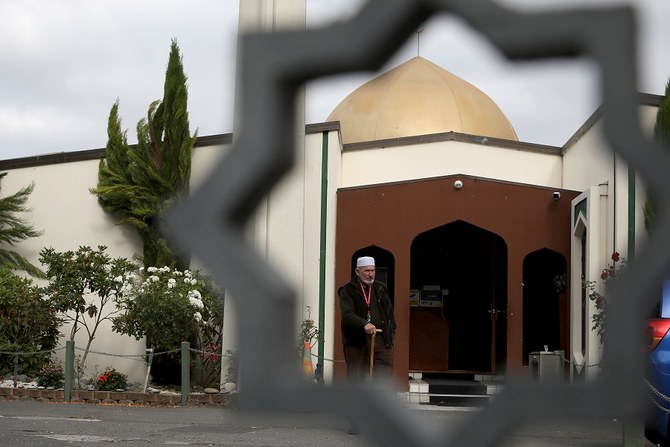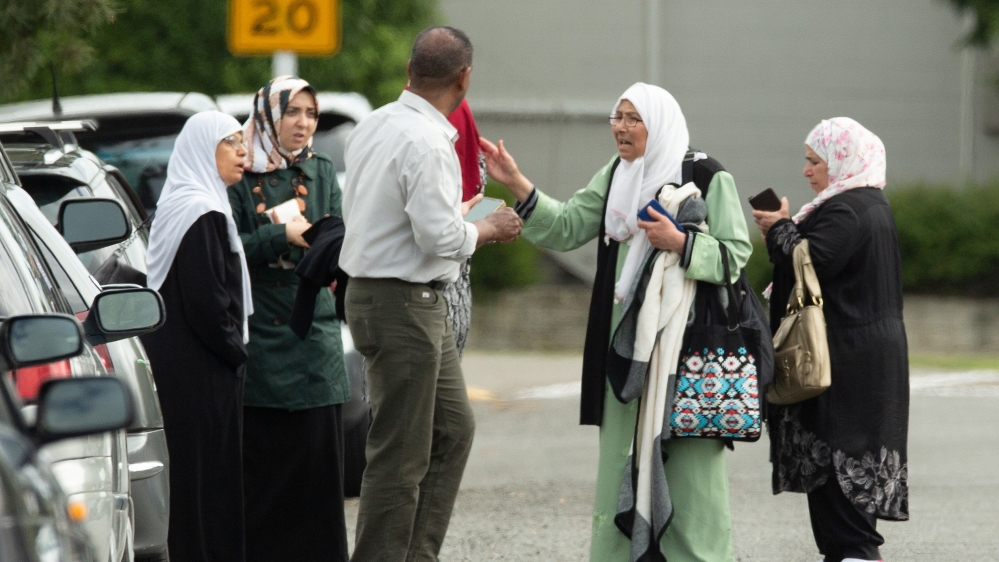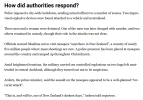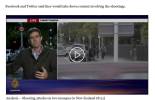The shootings in the largest city in New Zealand’s South Island — at Al-Noor mosque and Linwood Islamic Center during Friday prayers — were allegedly carried out by 29-year-old Australian Brenton Tarrant.
Since then, reforms in gun laws and social media regulations have been introduced, but there is a sense that a white supremacist movement remains active in the country.
Just weeks ahead of the attacks’ first anniversary on March 15, a new threat against one of the two mosques surfaced on social media, prompting fresh investigations by police.
A 19-year-old man was arrested after an image began circulating on an encrypted messaging app of a man sitting in a car outside Al-Noor mosque wearing a balaclava. The image carried a threatening message and a gun emoji.
Responding to the report, Prime Minister Jacinda Ardern said that she found it hard to believe that New Zealand’s Muslim community was still being subjected to online hate of this kind.
“I will be among many New Zealanders who will be devastated to see that as we head toward the one-year anniversary of a most horrific terror attack on the Muslim community, that they should again be the target of this kind of activity,” she said.
New Zealand police have increased security at the two mosques amid preparations for a memorial service to be attended by senior government officials and community members.
One year ago on Sunday, the alleged gunman made his way to Al-Noor mosque in suburban Riccarton at 1:40 p.m., broadcasting live footage of the attack on Facebook before launching a second attack at Linwood Islamic Center about 15 minutes later.
Footage of dead and wounded worshippers lying huddled on the floor was widely circulated on social media along with a published “manifesto” that denounced immigrants, calling them “invaders.”
The attacks were described as “one of New Zealand’s darkest days” by the New Zealand prime minister, who said it was an assault on the nation’s values.
Tarrant has pleaded not guilty to terrorism charges plus 51 counts of murder and 40 of attempted murder and will face trial on June 2.
The threats that the Muslim community in Christchurch have faced are similar to those directed at immigrant communities in many other parts of the world.
“
The white nationalist threat is a constant,” Patrick Strickland, a journalist and author of “Alerta! Alerta!,” told Arab News by phone from Athens.
“Without organized pushback, such violence will continue to crop up in places from Christchurch to Hanau to El Paso.”
According to Strickland, “fascism” is a political ideology that “doesn’t exist without violence,” adding that “perpetrators of individual acts of fascist violence feed off each other.”
Unsurprisingly, the Christchurch killings inspired a number of terror attacks in the US and Europe.
Just one month later, a 19-year-old man opened fire on worshippers in a deadly shooting rampage at a southern California synagogue.
In August, a young man carrying several guns was overpowered after firing shots at an Islamic center in Baerum, near Norway’s capital Oslo.
And in October, two people were killed when an armed man opened fire outside a German synagogue on Yom Kippur, the holiest day of the Jewish year, and livestreamed the attack.
The attackers in Norway and Germany had both expressed far-right, anti-immigrant views online.
Livestreaming of some these attacks has led to changes in social media regulations in some countries.
After the Christchurch shooting, Facebook faced intense scrutiny for its role in enabling global dissemination of the horrific video.
The California-based online giant said that before the incident, posts that violated community standards “on Live or elsewhere” were taken down, and users were blocked from the platform if the offense was repeated.
Following the incident, a “one-strike” policy was introduced by the social media company for use of Facebook Live.
“From now on, anyone who violates our most serious policies will be restricted from using Live for set periods of time — for example 30 days — starting on their first offense,” Facebook said. “For instance, someone who shares a link to a statement from a terrorist group with no context will now be immediately blocked from using Live for a set period of time.”
Facebook said that while it recognized the tension between people who would prefer “unfettered access” to their services, restrictions were needed to keep people safe on the site.
In a statement to Arab News, a Facebook spokesperson said: “We stand with New Zealand as we remember the people and families affected by the tragedy on March 15. The New Zealand government has shown global leadership in bringing governments, industry and civil society together to combat hate and violent extremism.
“Since March 15 and the Christchurch call, we have tightened our policies, strengthened our detection technology, expanded initiatives to redirect people from violent extremism, and improved our ability to work with other companies to respond quickly to mass violence.”
The Christchurch shootings also led to important changes in New Zealand’s gun laws, with semi-automatic weapons of the kind used in the terrorist attack banned.
On April 10, 2019, a gun reform bill was passed by Parliament, and a buy-back scheme that cost the state NZ$200 million ($138 million) was introduced for banned weapons.
Under the new law, all military-style semi-automatics and assault rifles were banned, along with parts used to convert weapons into semi-automatics and all high-capacity magazines.
The law offered exemptions to farmers for pest control and animal welfare.
Several months later, new laws called for the creation of a registry to monitor every firearm legally held in New Zealand. Rules for gun dealers and individuals were tightened and the term for firearm licenses was halved to five years.
So far, Ardern has fulfilled her promise to make New Zealand a safe home for all citizens. But there are no grounds for complacency or over-optimism.
The plaudits that New Zealand’s gun-control efforts have earned outside the country are in sharp contrast to the resistance she has faced at home, including organized protests.
The opposition National Party, gun lobby groups and ordinary people have opposed the legislation introduced in September.
